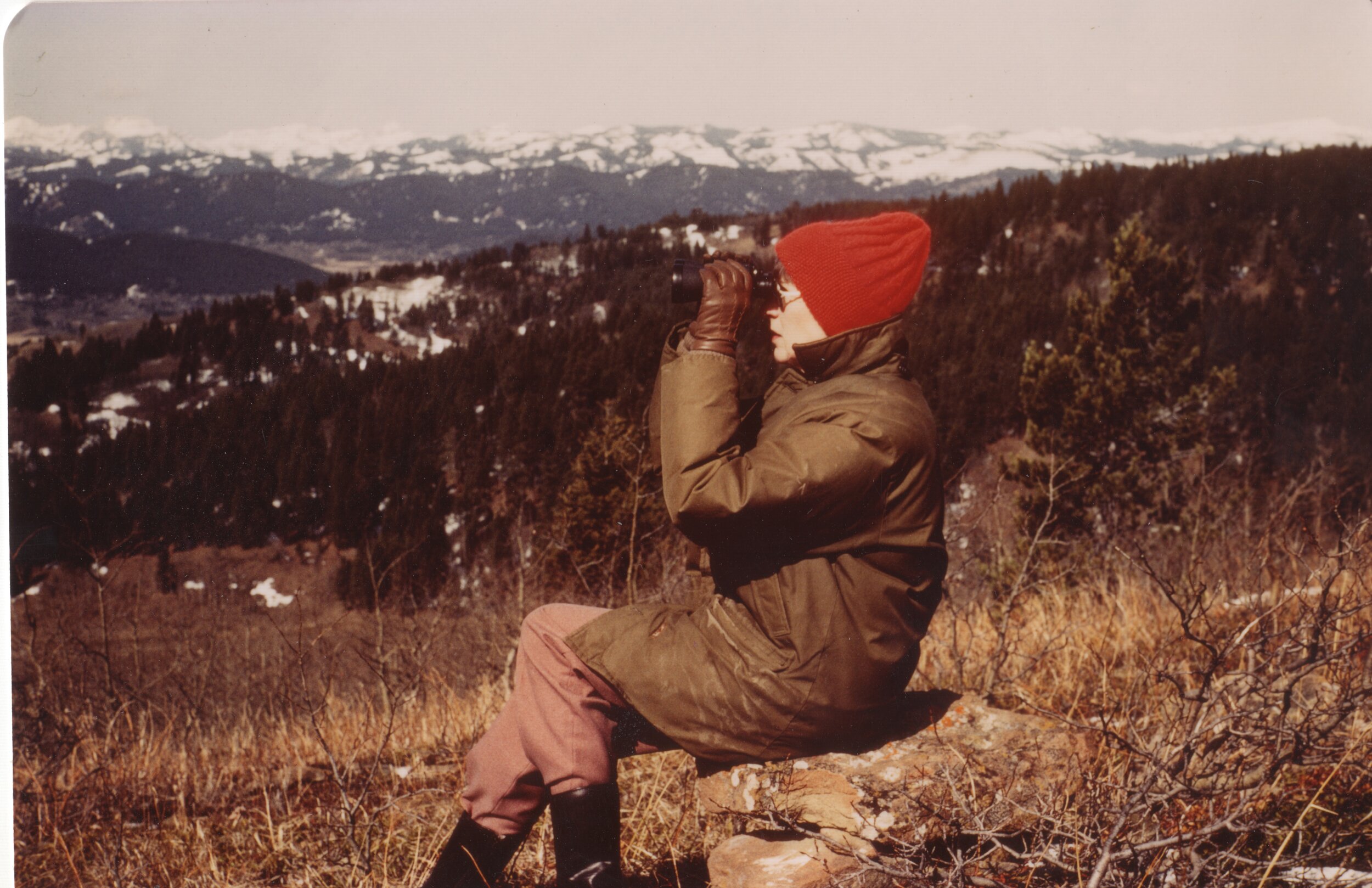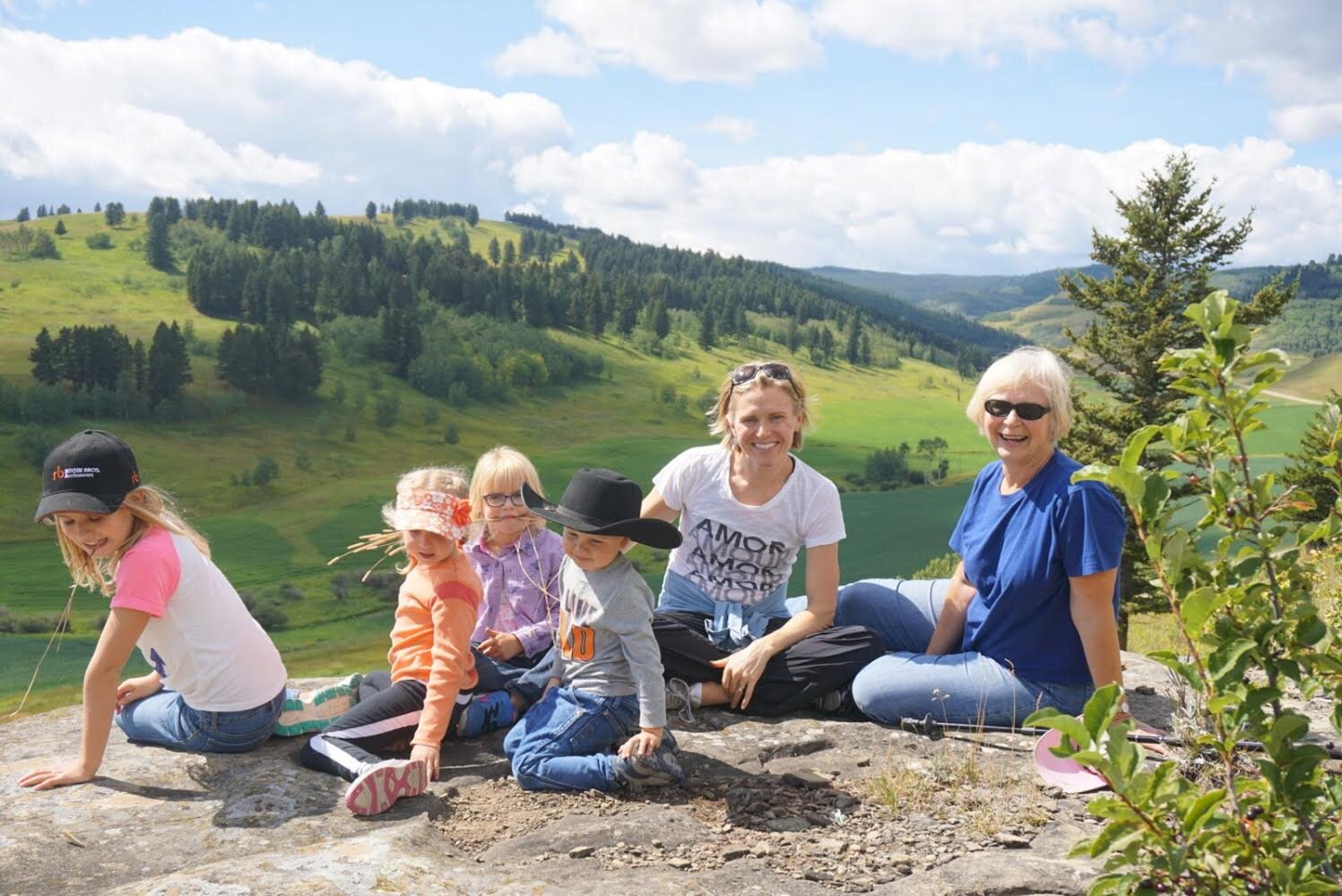Our Story
Home Grown & Hand Raised
At Burke Creek Ranch, we are a fourth generation, 130-year-old family ranch located just off Highway 22, Alberta’s Cowboy Trail.
We take pride in ranching practices that focus on sustainable land use, the ethical treatment of animals and providing delicious, healthy and affordable food to Albertans. We know our practices are better for our land, our livestock and our community. We are fiercely proud of our grass fed and finished black angus raised with care by our family.
Rick Burton at Burke Creek Ranch
Consumers want to make sustainable choices when purchasing goods and services. The VBP+ program has its roots in the on-farm food safety program, the only food safety program for beef producers reviewed by the Canadian Food Inspection Agency (CFIA).
As a VBP+ certified operation, Burke Creek Ranch abides by the highest standards for food safety, animal care, land management, conservation and biosecurity when raising our cattle. VBP+ certified operations adhere to strict program requirements and are audited under a third party audit process.

View looking west - Burke Creek Ranch
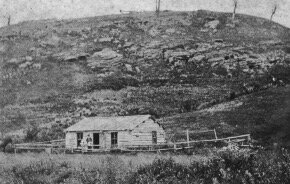
Fred and Minnie Burton original Trout Creek homestead, built 1890
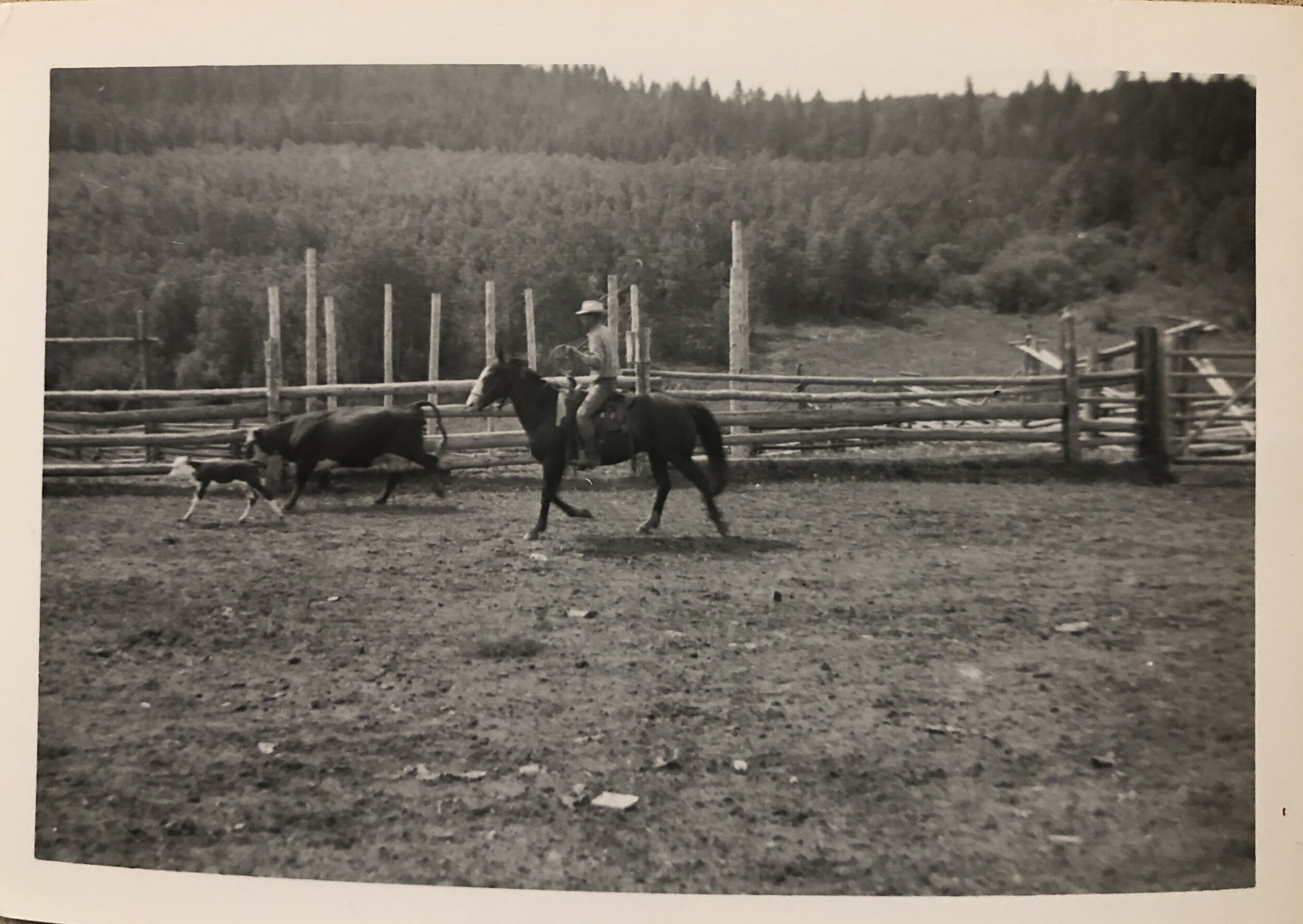
Gordon Burton roping, 1954
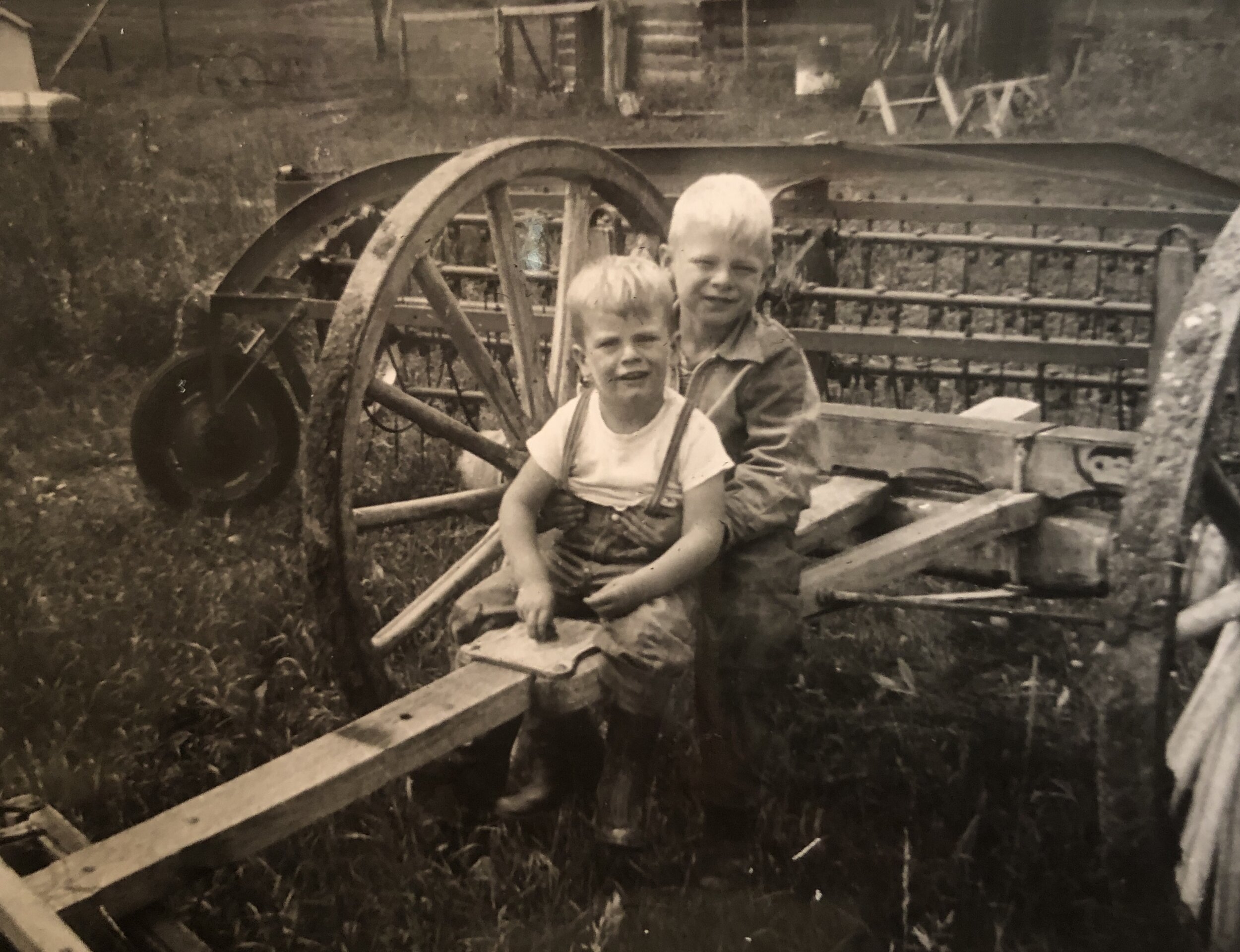
Rick and Randy Burton, 1957

Burke Creek Ranch home buildings, 2020
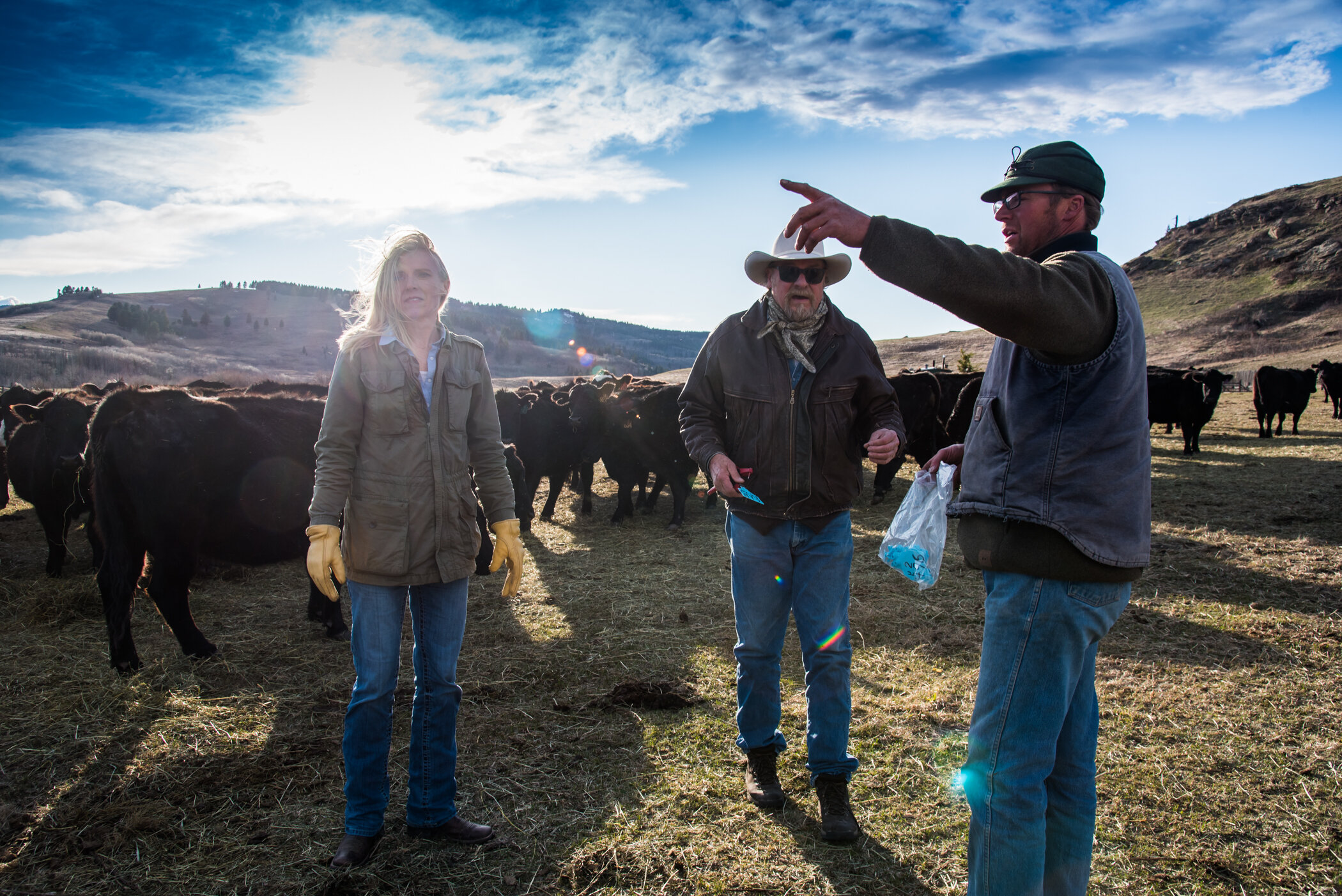
Kim, RIck and Adam - calving season, 2020
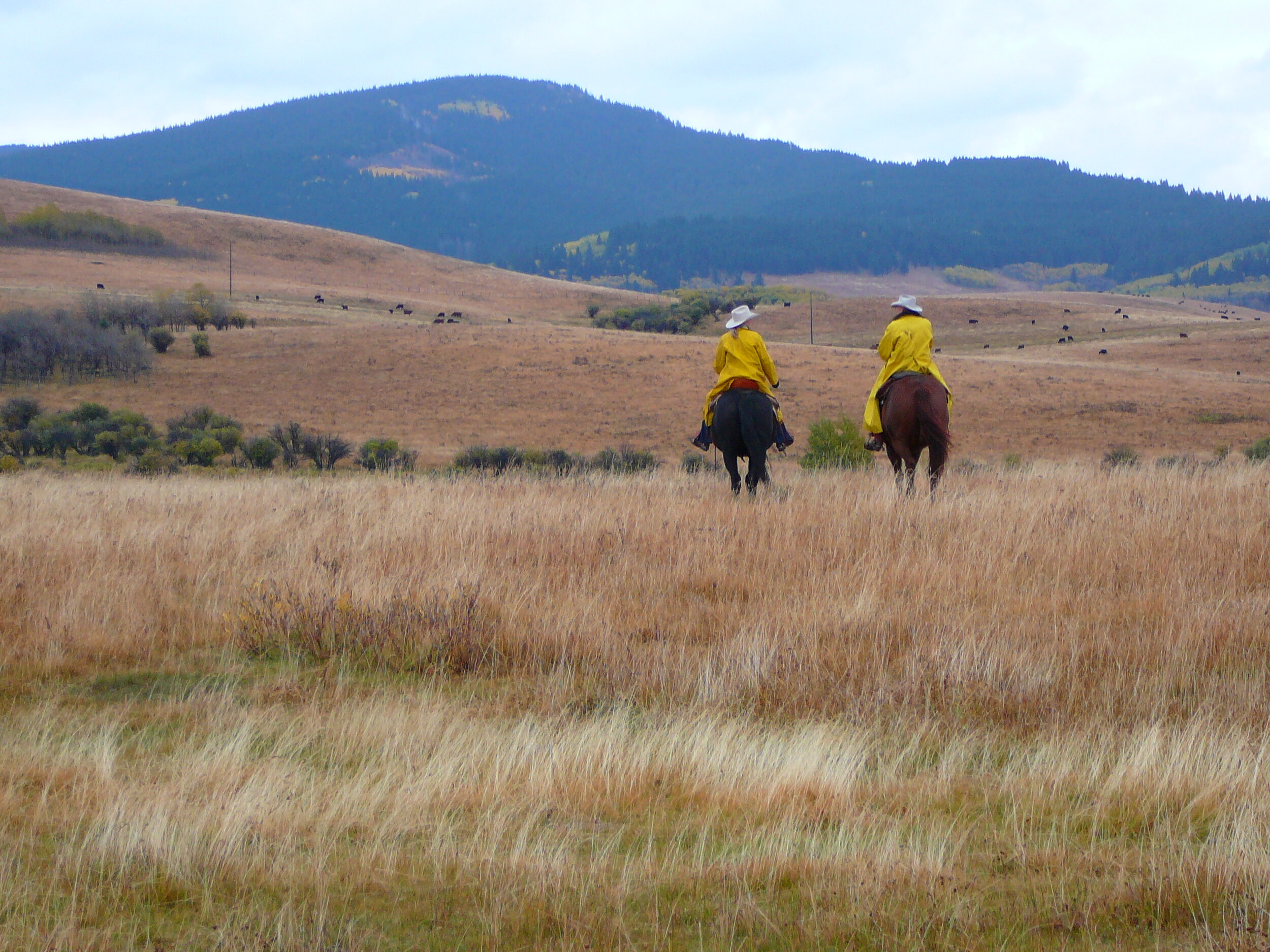
Kim Wachtler and RIck Burton; Waldron Grazing co-op fall roundup
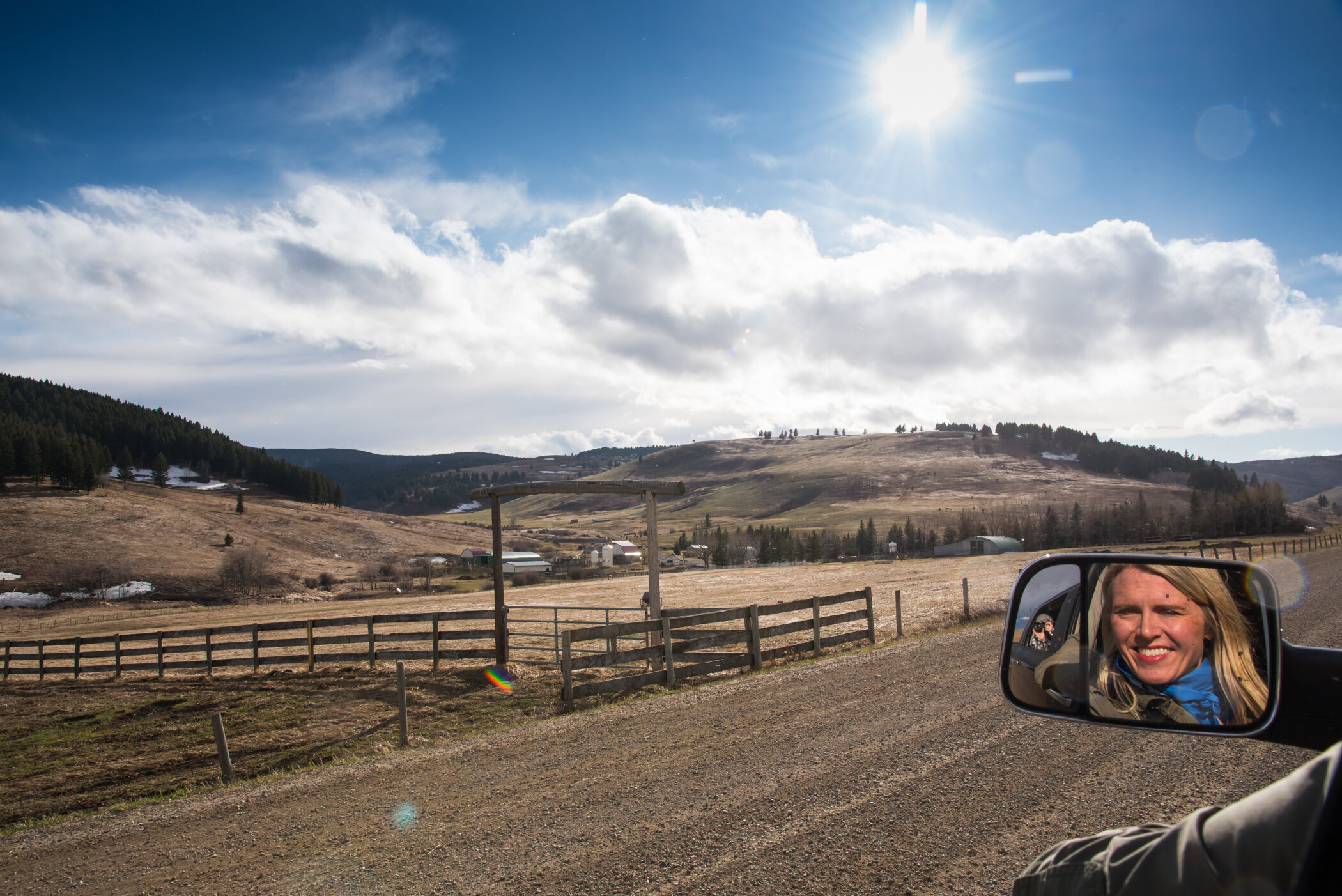
Kim Wachtler - looking west
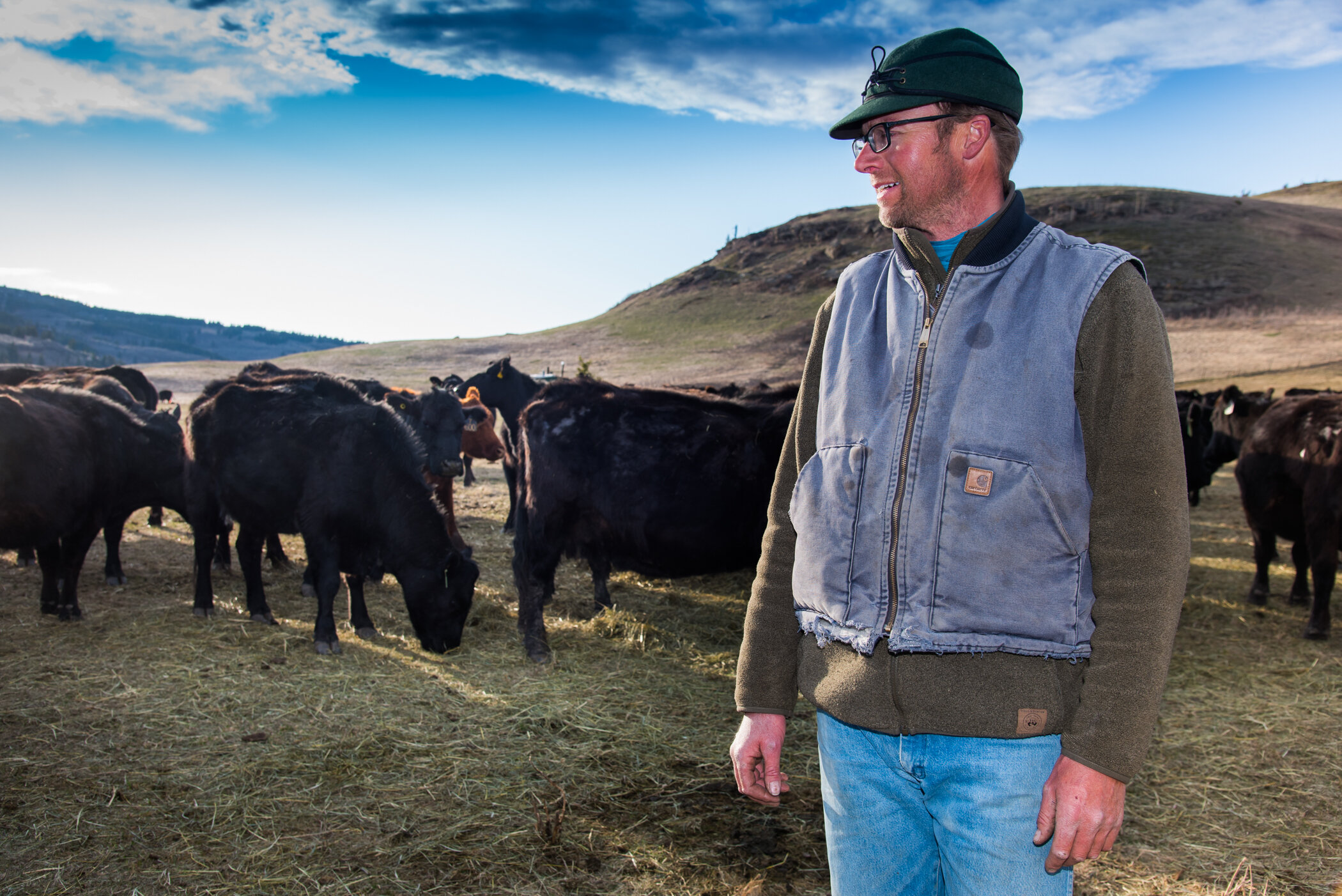
Adam Burton - ensuring herd health

Curious critters
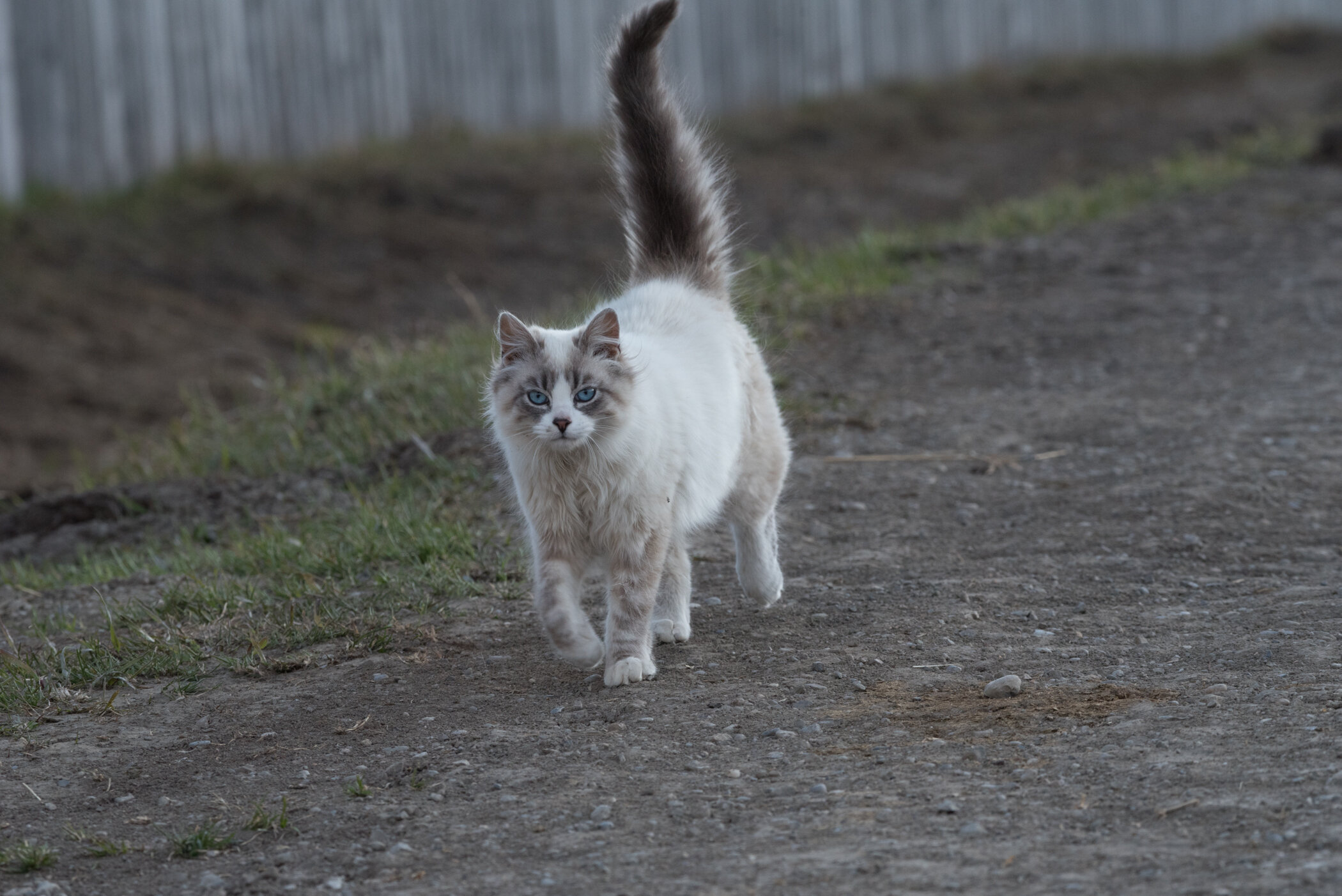
"Snowball" the barn cat

Blake, Kassie and Adam Burton
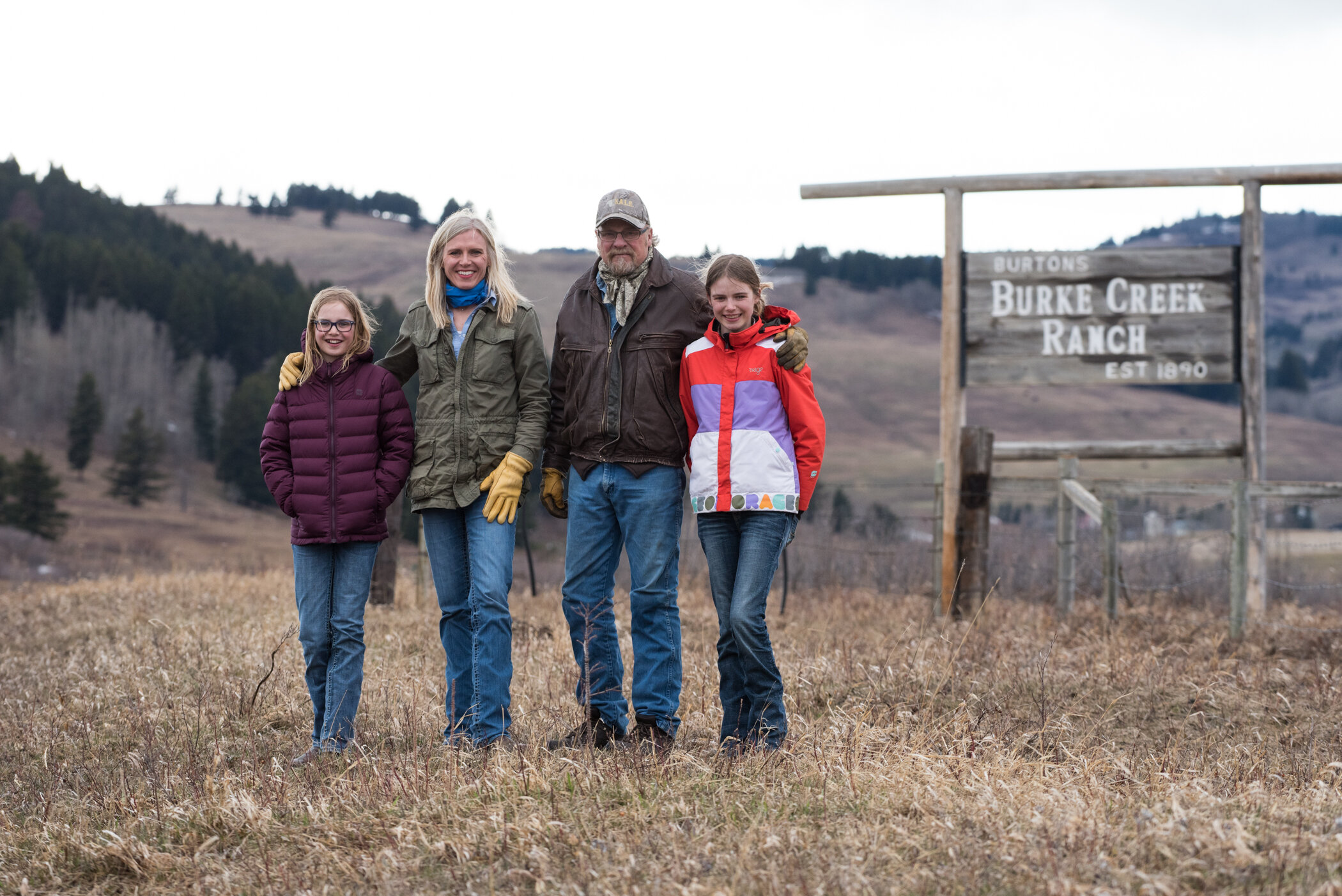
Three generations
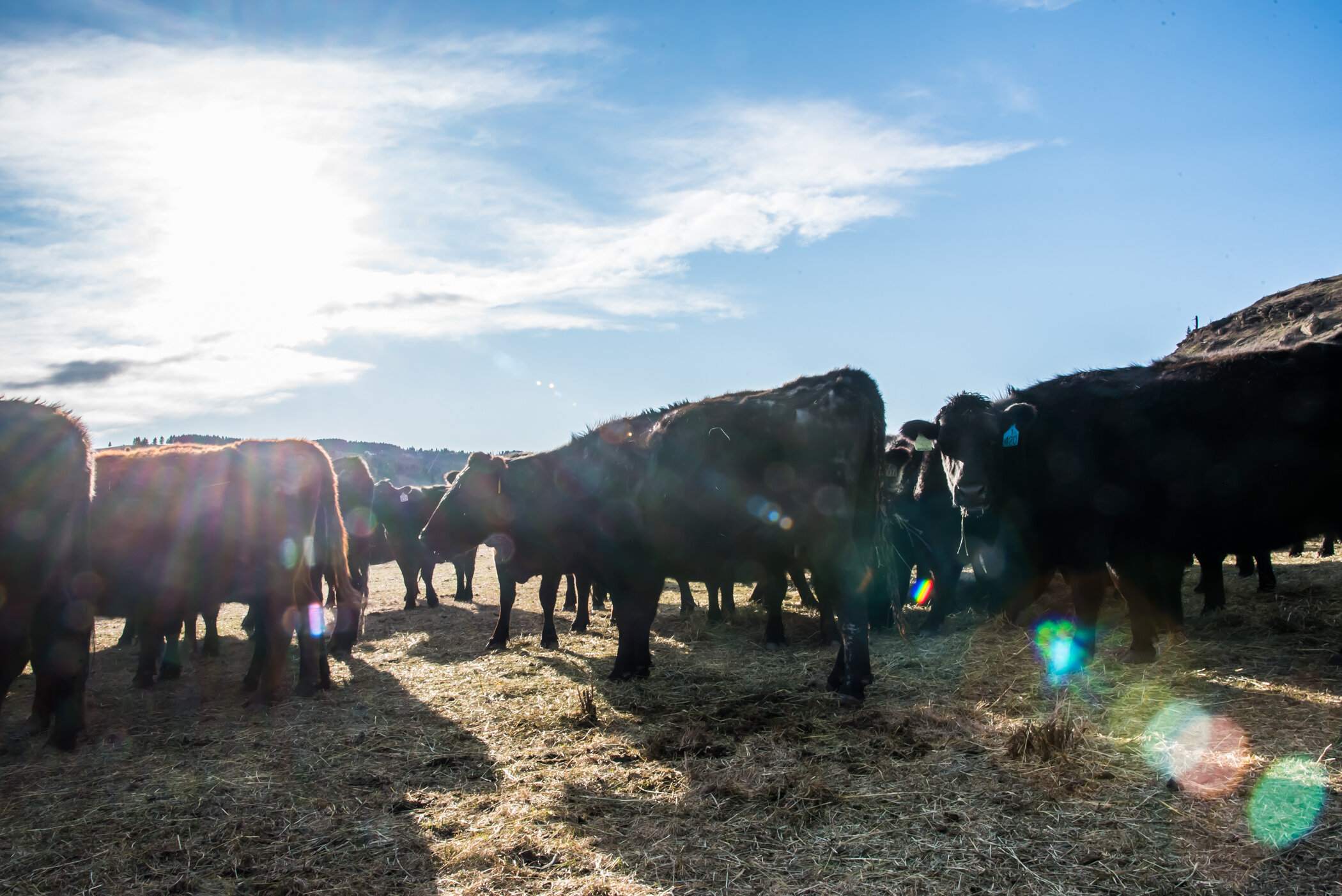
Gathered for some extra calving season calories
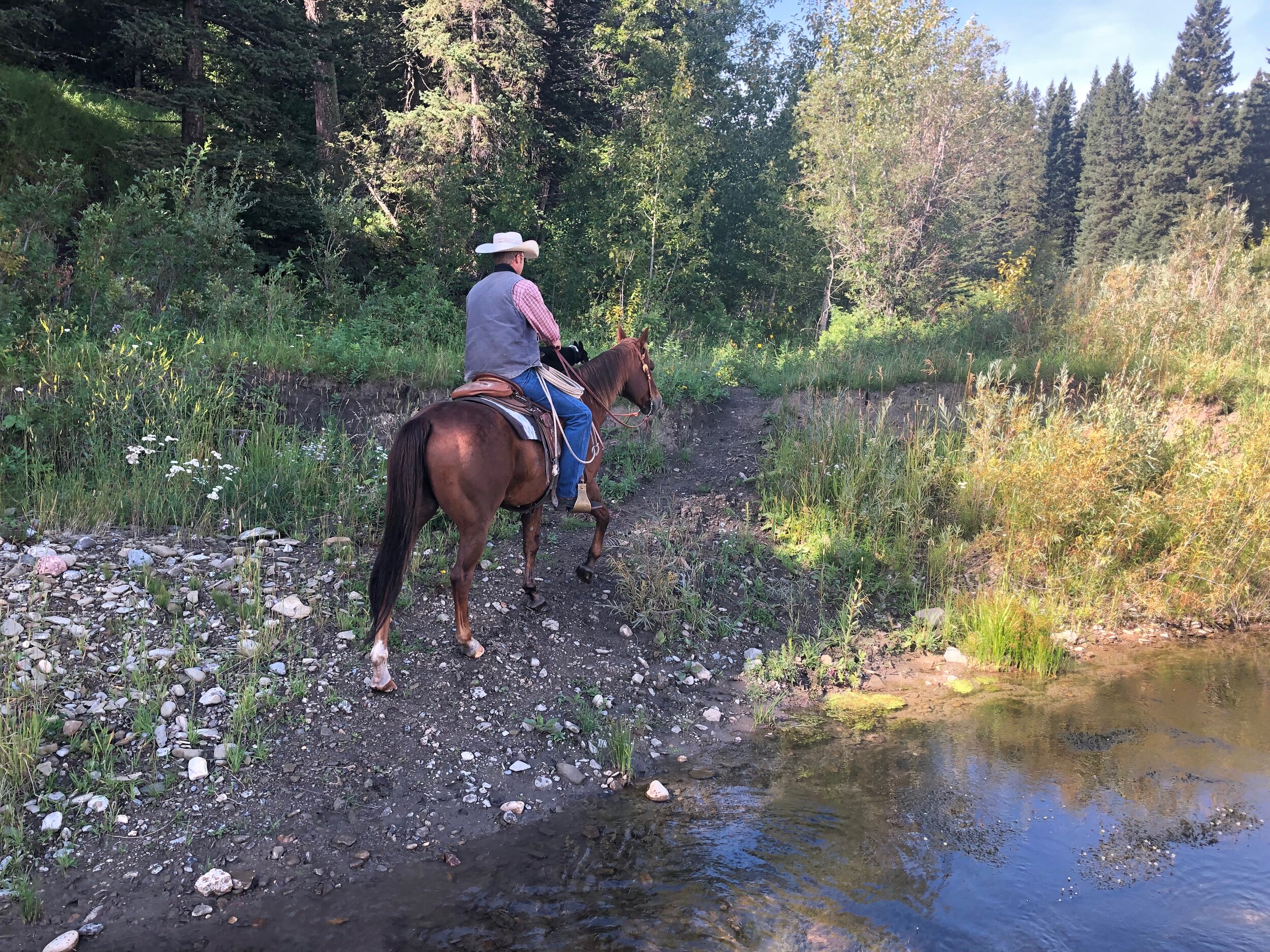
Low stress livestock handling on horseback
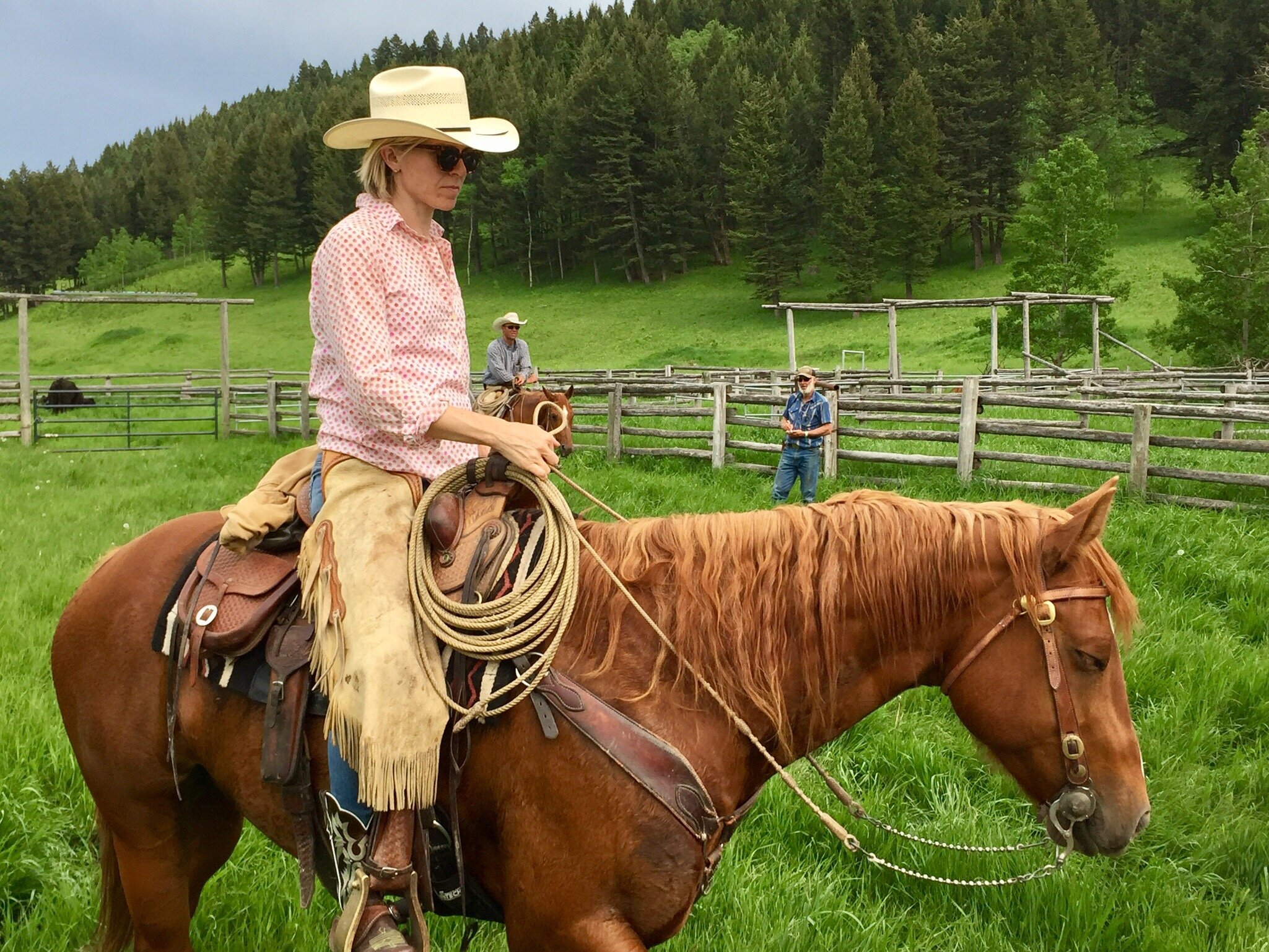
Kim Wachtler, June 2017
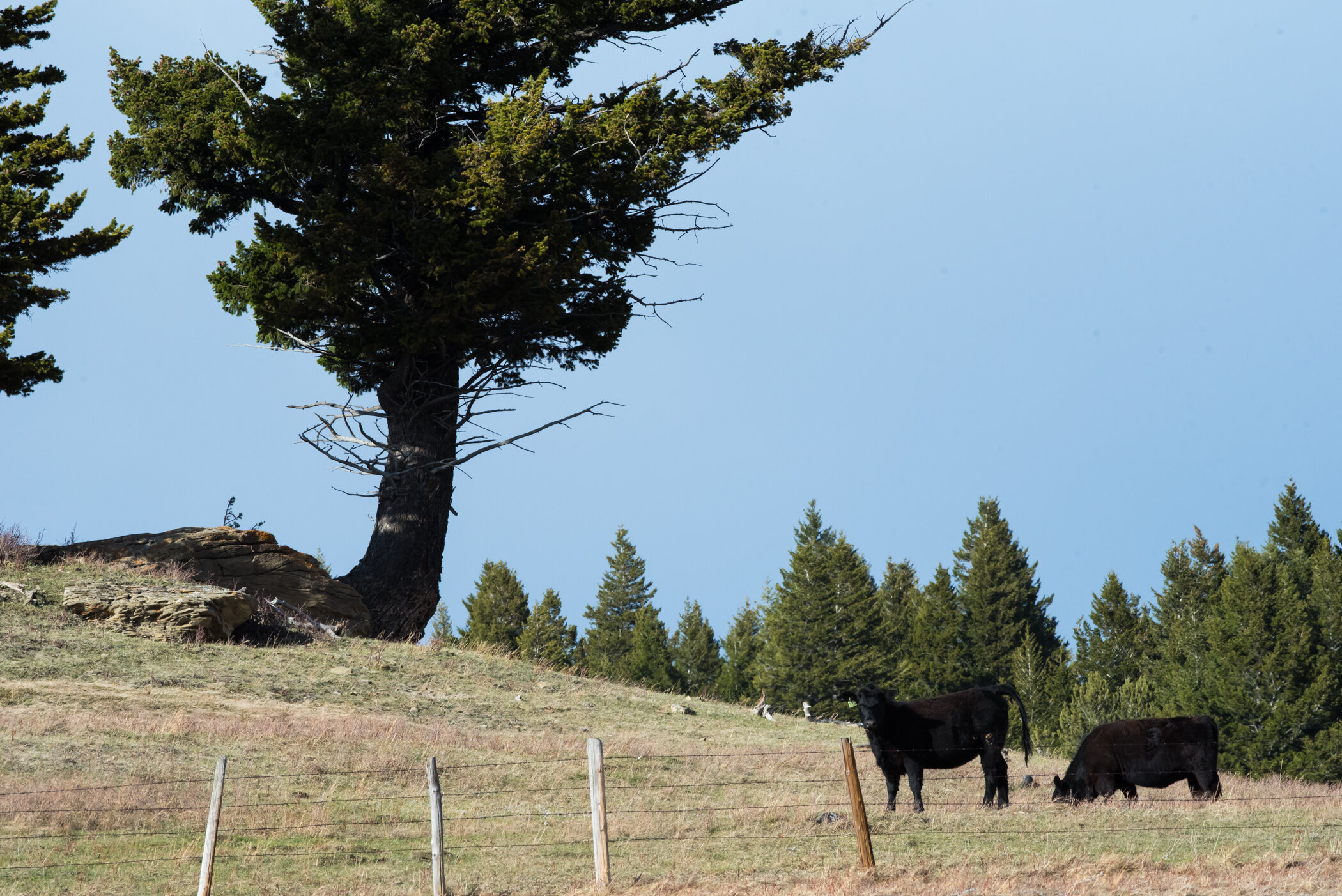
Ready for green grass grazing
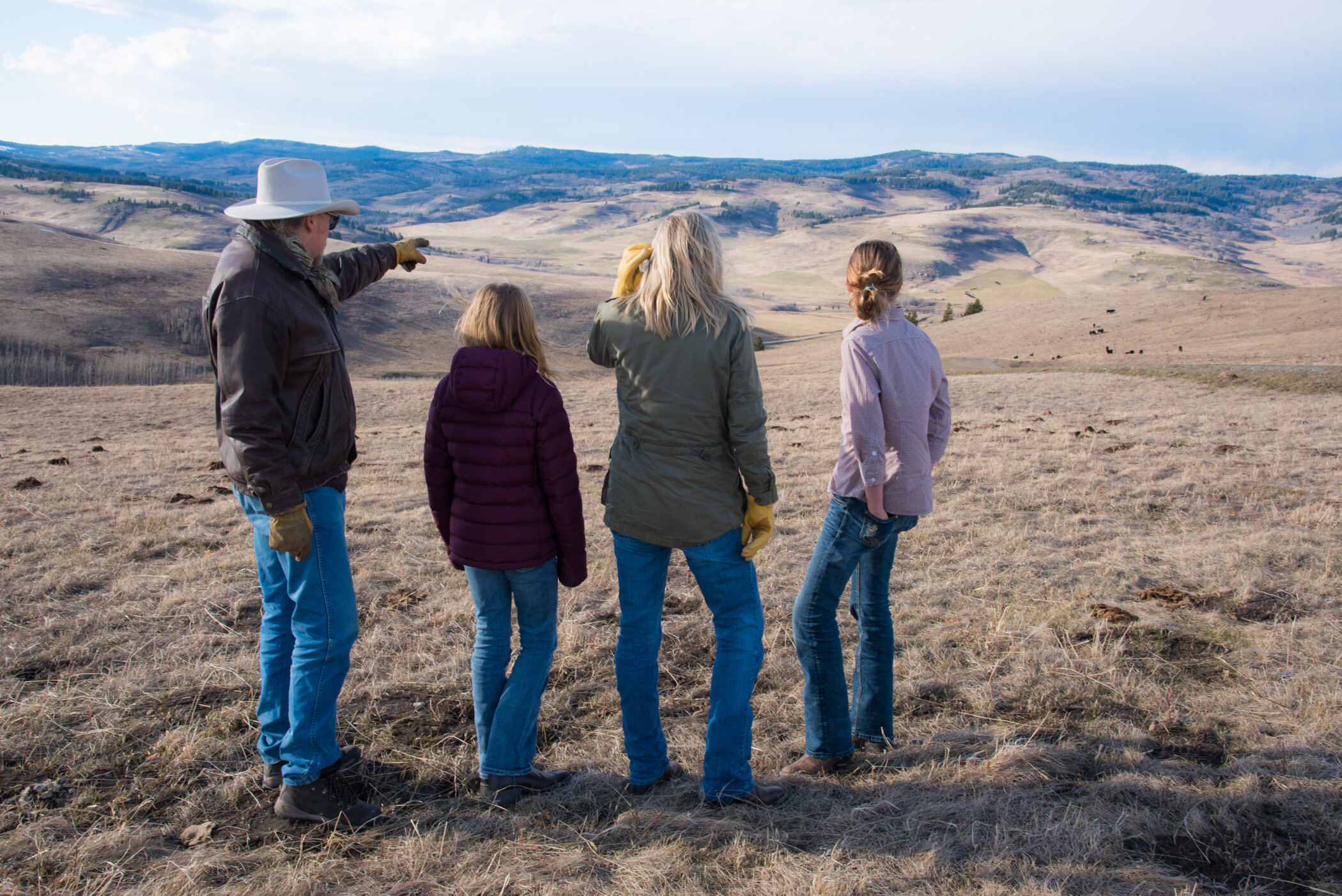
Undisturbed grasslands
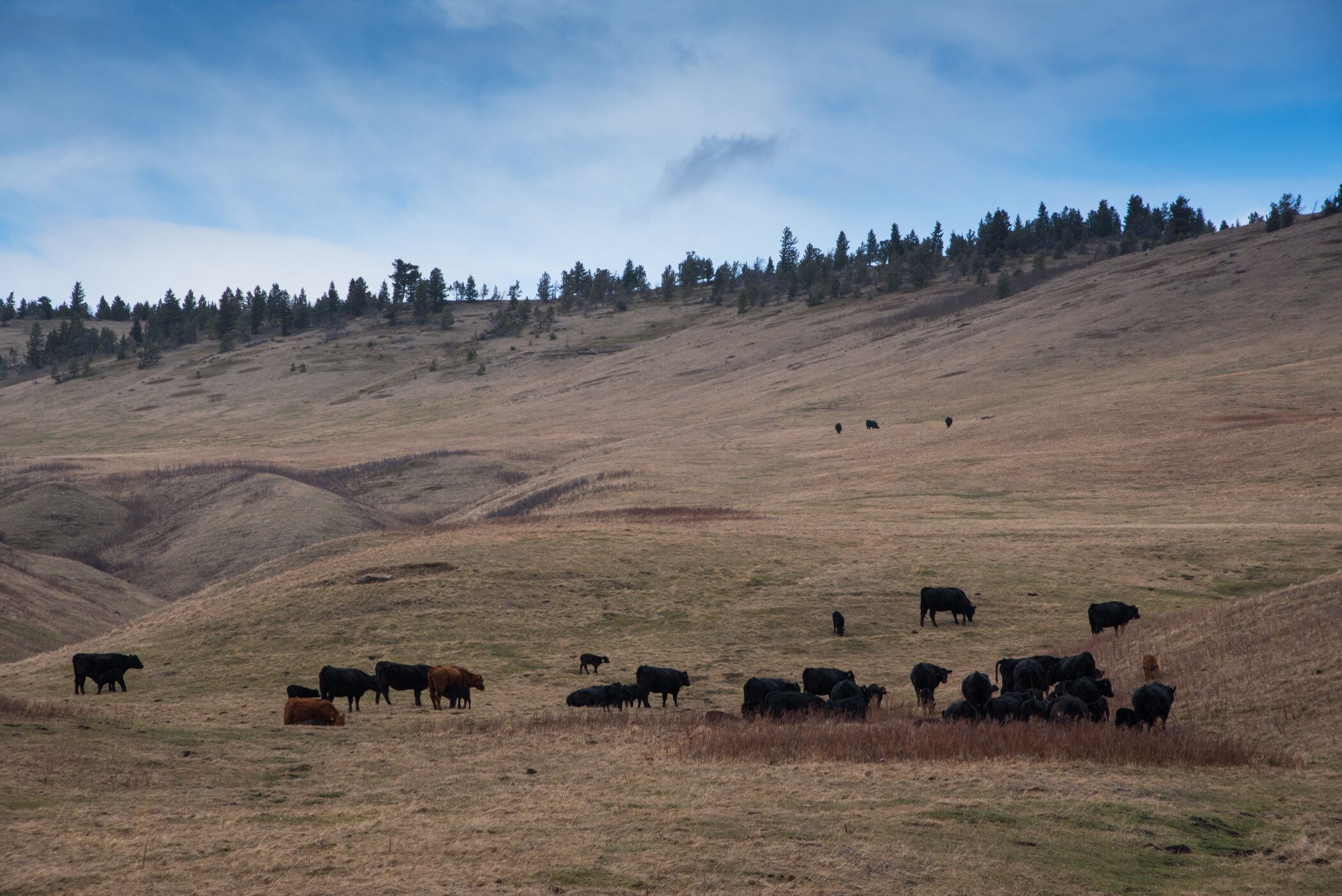
Room to roam

Hawkseye' View
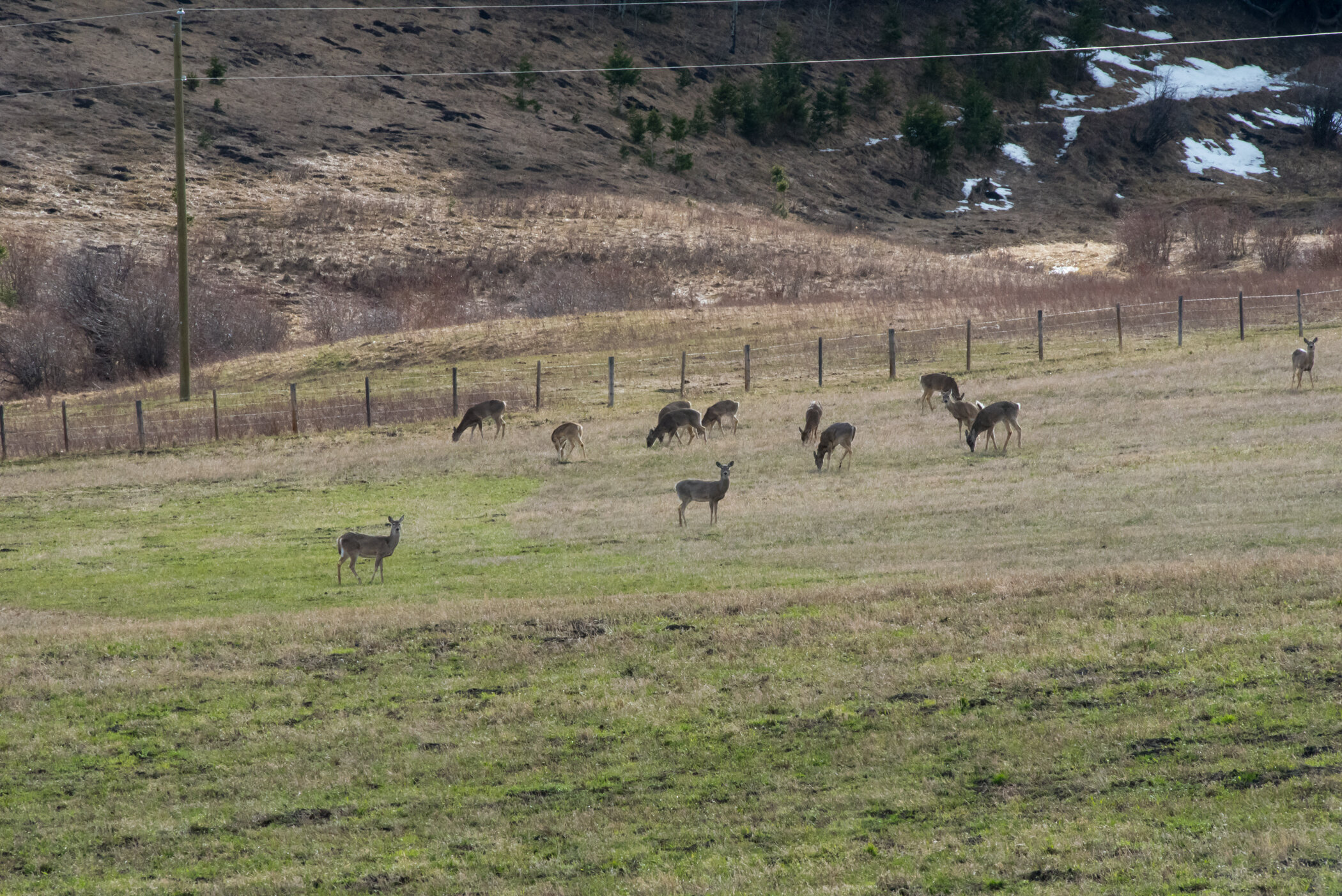
Whitetail deer
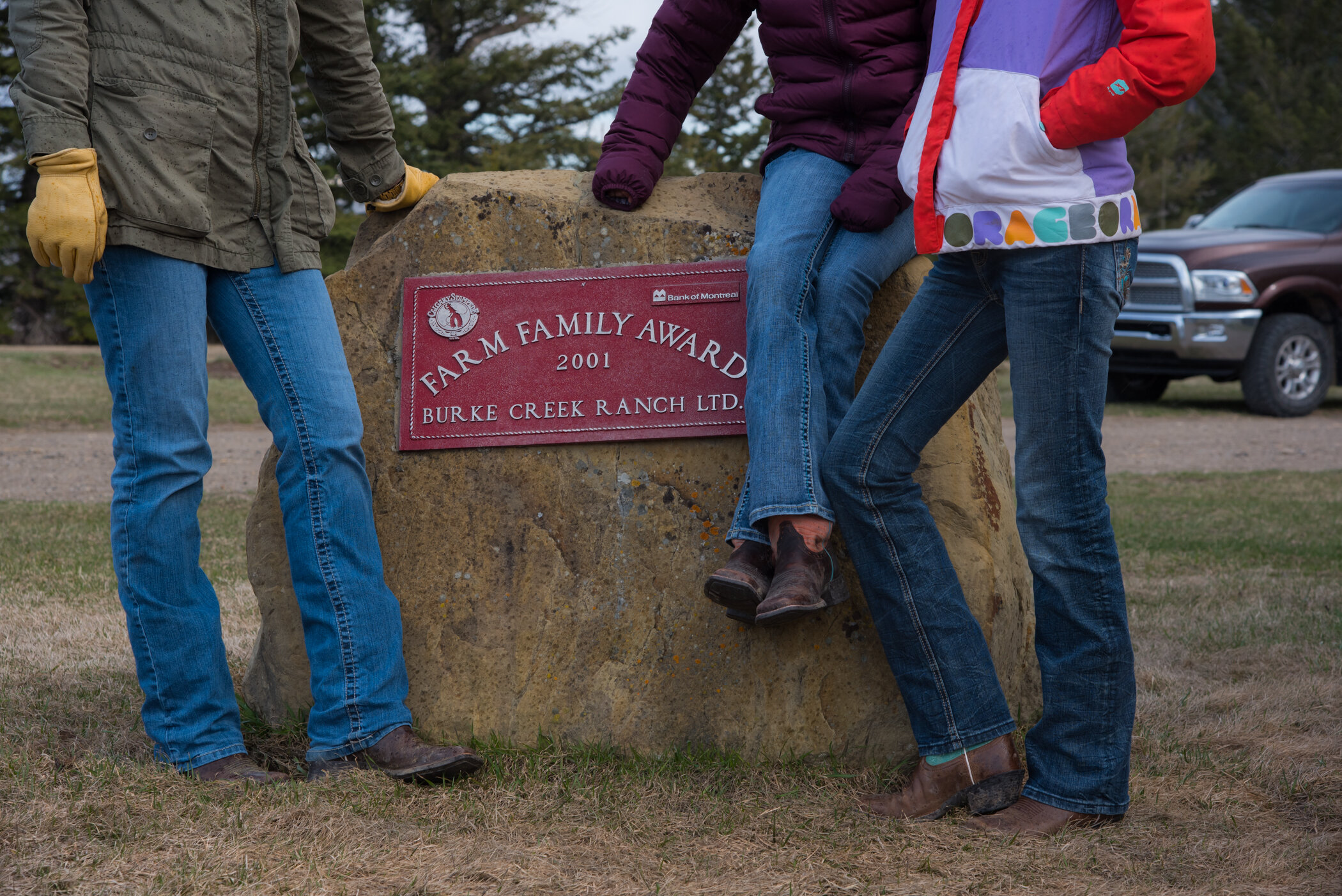
Farm family
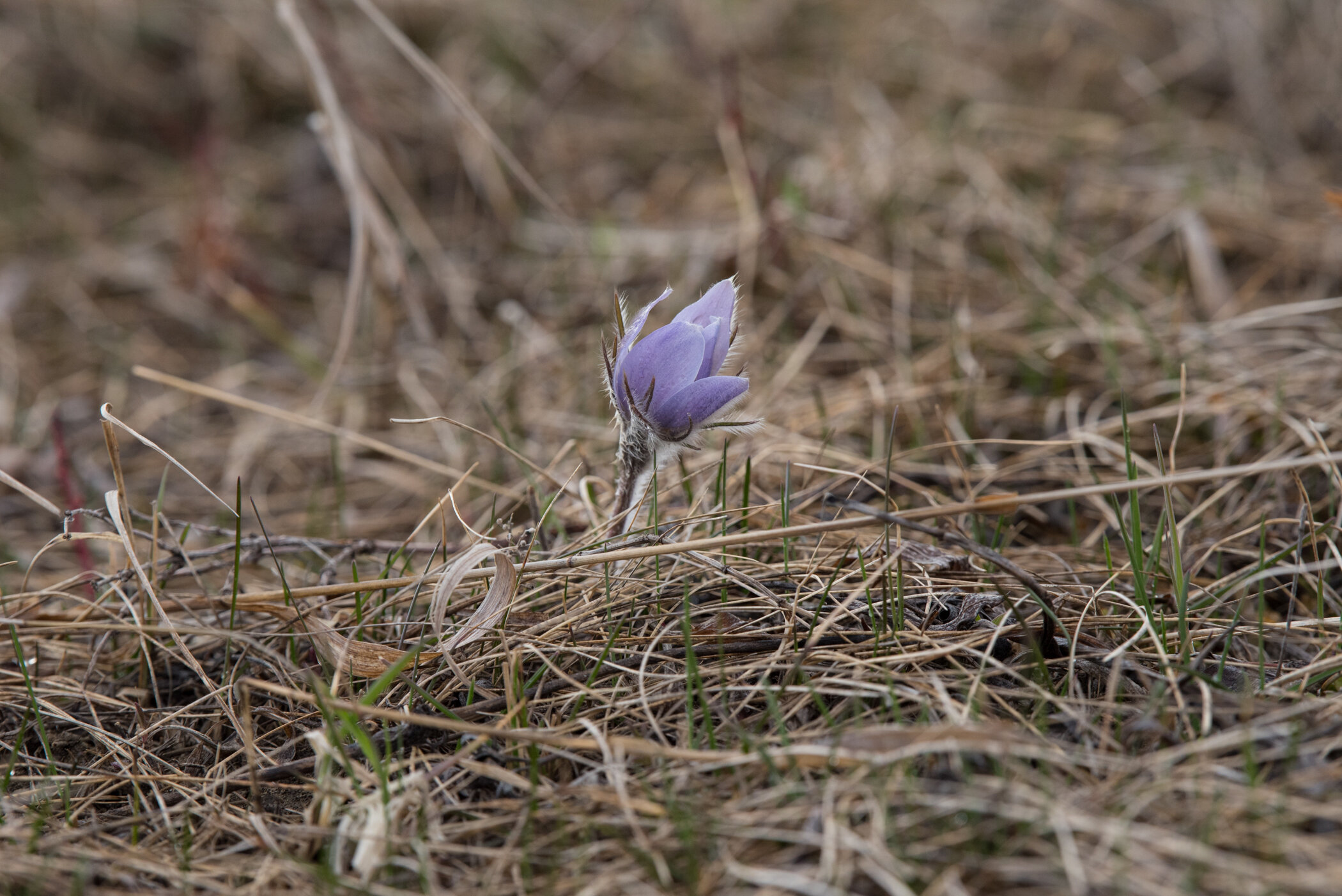
Spring's first crocus
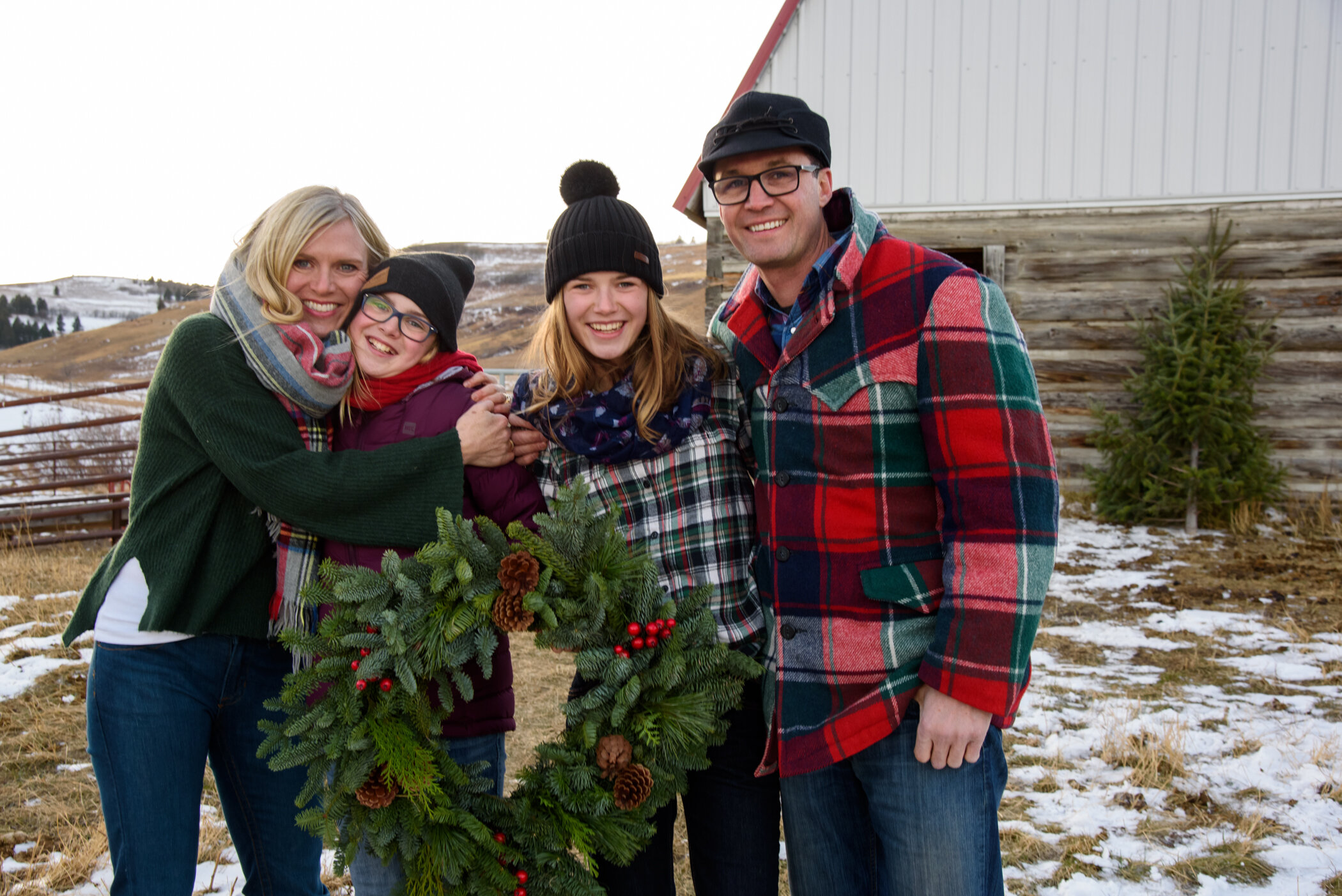
Kim, Cate, Fara and Darren Wachtler
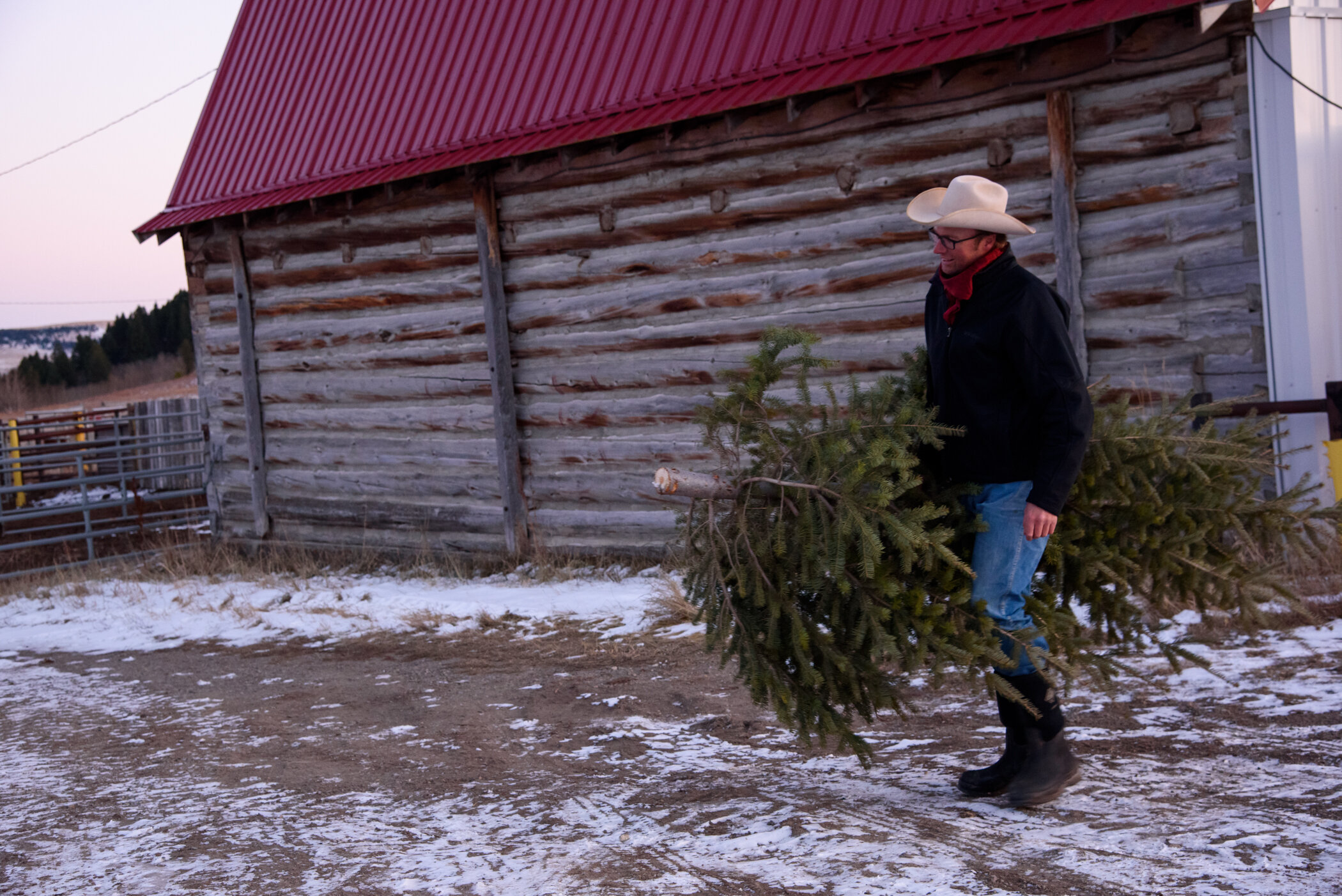
Christmas is coming!
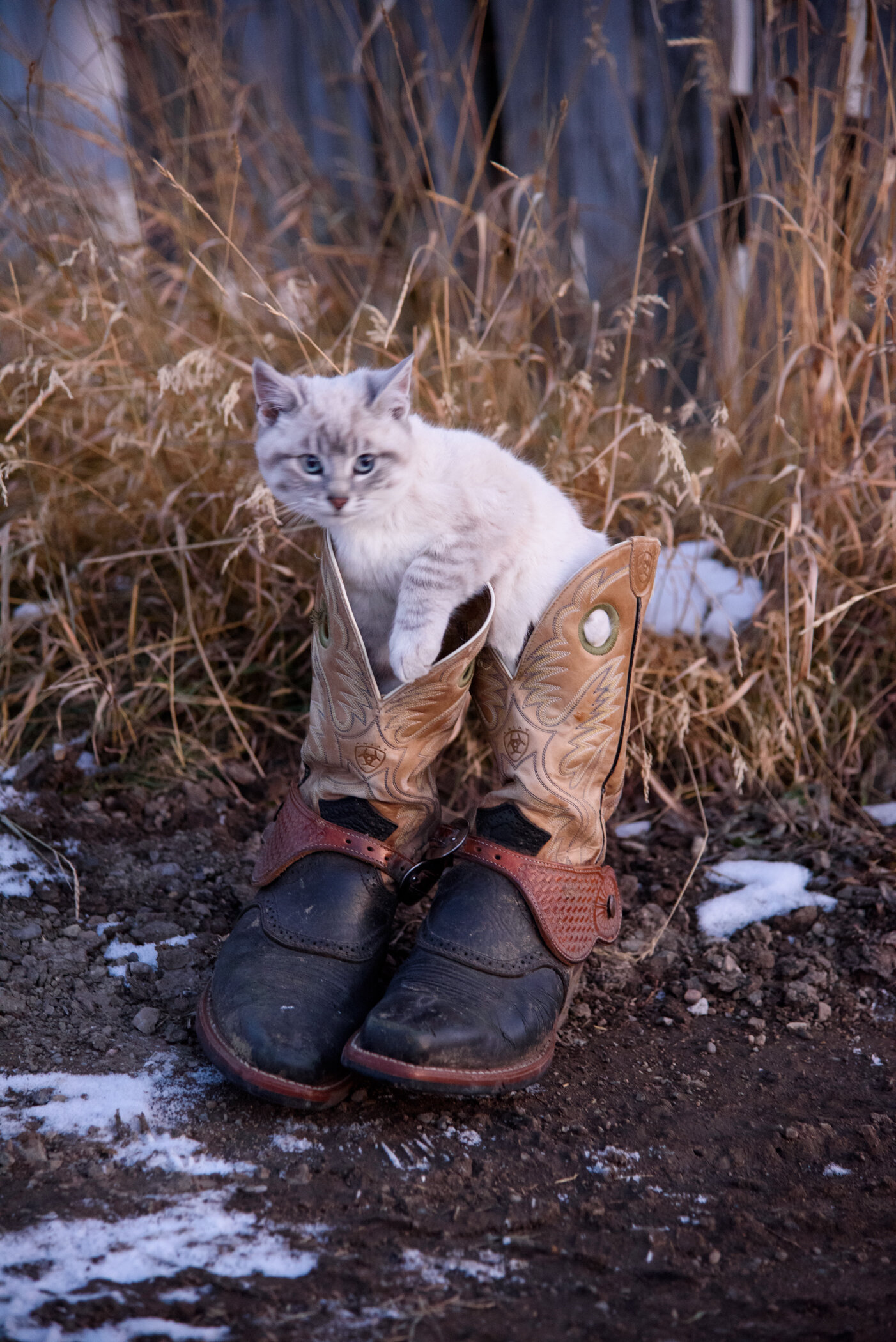
That curious kitten!
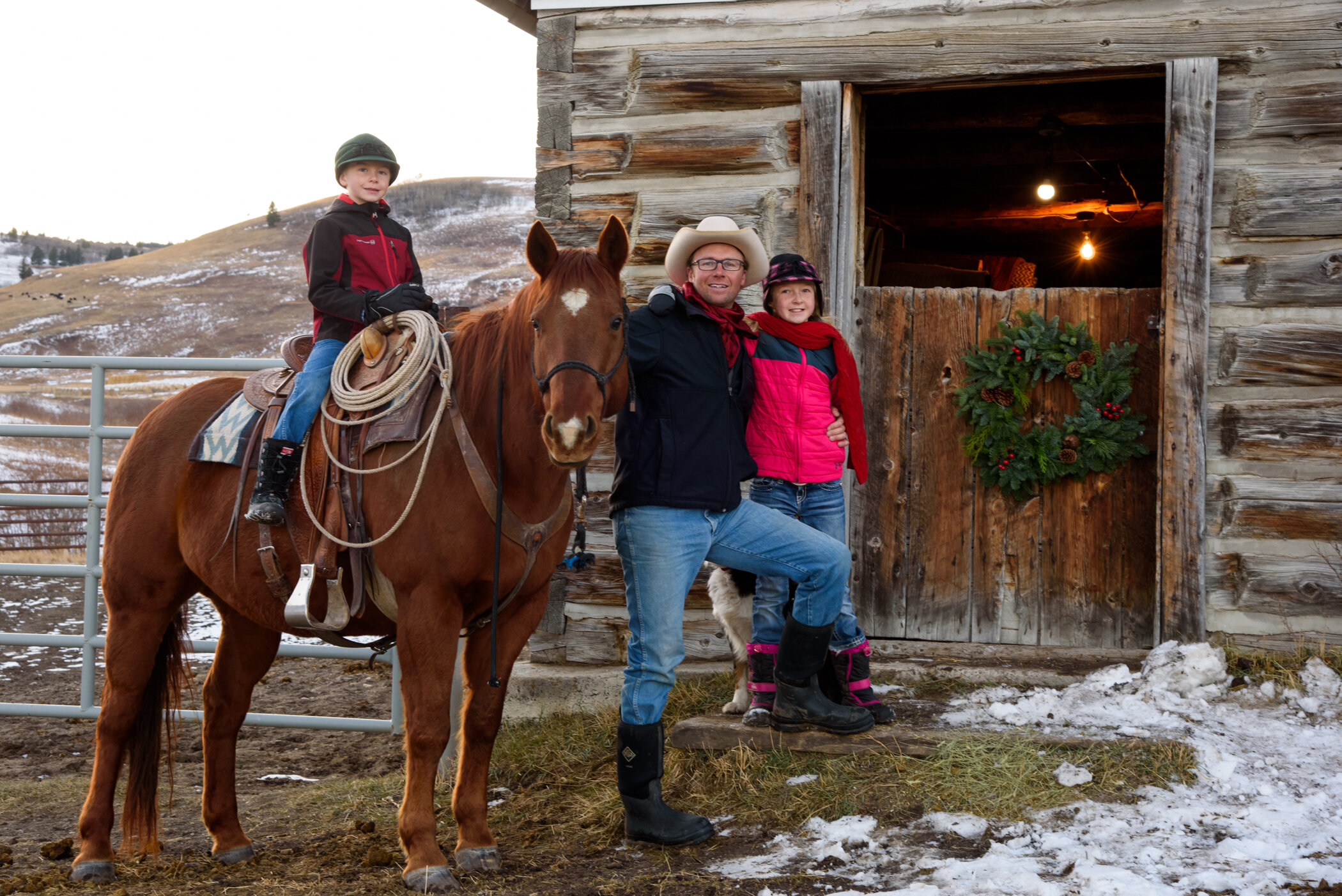
Blake, Adam and Kassie Burton
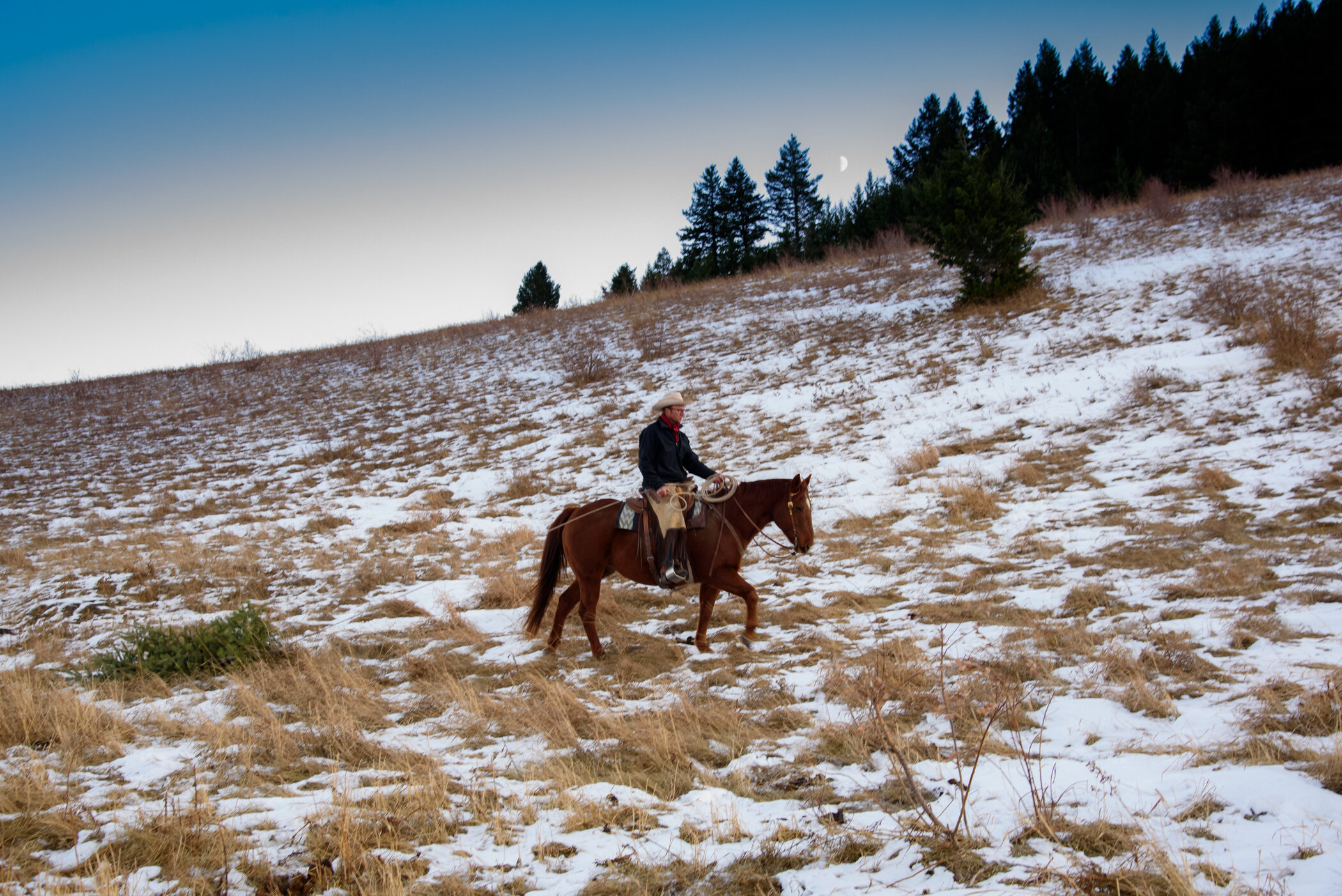
Country Christmas Tree
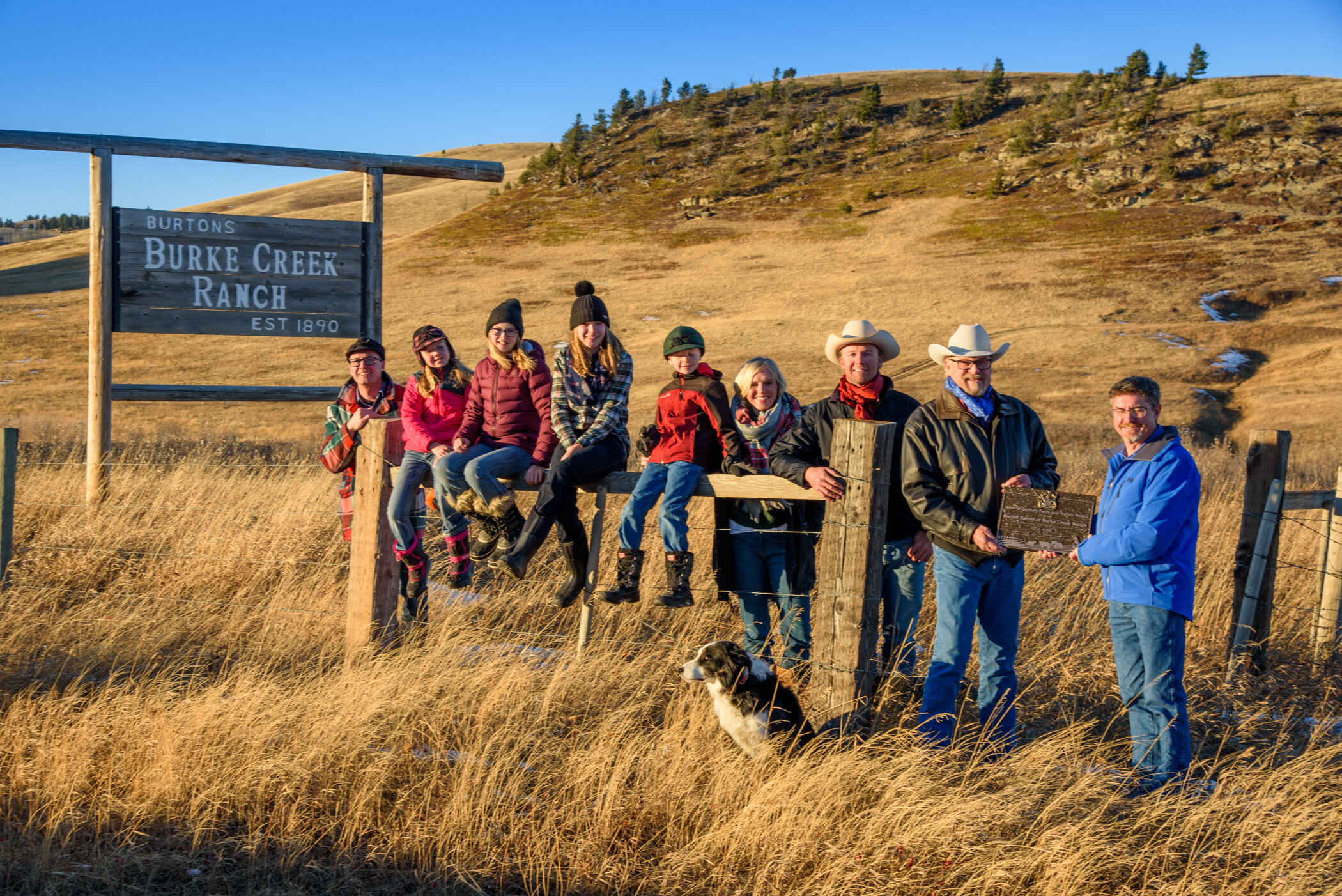
Alberta Farm and Ranch Century Award Nov, 2020
The Burke Creek Ranch story
A love affair lasting more than a lifetime
Summer 1886, Fort Mcleod, Alberta – Kit bag in hand and five dollars in his pocket, 18-year-old Frederick Burton, stepped off the new CPR rail car and gazed over a sea of grass. Being a younger son meant Fred had to make his own way in the world, and he decided this land, land that would one day be known as Alberta, was the place for him to get his start.
He had no way of knowing that he was about to create a legacy that would last for generations.
Young Fred lacked capital, but he was full of ambition and smarts. He quickly moved from farm crew ploughing land to ranch hand to land owner, initially gaining his own piece of soil “squatting” on Trout Creek near Claresholm in 1890. He built a sod-roof cabin, a barn and some corrals, adjacent to a good spring. He then moved in a few horses and a small herd of cattle. His intention was not to turn the sod, as government policy at the time encouraged, but to partner with the natural resources to graze cattle.
In 1896, Burton married Minnie Furman, who had emigrated from Baker, Oregon. To help finance the operations and growth of their ranch they established Furman Postal Outlet. Every two weeks, Fred would hitch up his team and head to the nearest postal service in Claresholm where he would gather up the mail for all the homesteaders in the coulees west of Claresholm. Furman, Alberta is marked on Google Earth today, for this reason.
Over their lifetime, the couple expanded the humble beginnings of the ranch, supporting their sons to also get places of their own in the area.
Youngest son Gordon left the area to pursue an academic career gaining a PhD in Agricultural Economics from Iowa State University, and later becoming a professor at McGill University. But the call of the land was too great. Gordon left his career, moving his wife Jean and young family back to manage the ranch after the passing of his father. Gordon continued to build on the legacy set by his family in ranching, contributed to the development of provincial and federal agriculture trade and policy, and was inducted into the Alberta Agricultural Hall of Fame in 1977.
Ranching history and folklore, for the most part, has traditionally been passed on as the near exclusive domain of the patriarchs of pioneer families. In actual fact, the Burton’s is not the only story to stray from these norms.Women played—and continue to play—a critical role in Canada’s ranching story.
Below: Emma Furman Cook (l) and Minnie Furman Burton (r) circa 1890
Jean Burton: pivotal in Burke Creek Ranch’s history
From a pampered city girl who didn’t know the difference between a market garden and a cattle ranch in 1941, Jean Burton, Gordon’s wife, became absolutely devoted to the continuation of this pioneer ranching operation—one of many important female players in the Burke Creek Ranch story. Without Jean’s incredible personal sacrifice, unbelievable determination and absolute devotion, Burke Creek Ranch would be nothing more than a distant memory today.
Gordon and Jean’s sons Jay and Rick joined their parents in operating the family business. They too married and raised their children in these foothills and traditions. Susan Burton, Rick’s wife, with Jean as precedent, carried on as the indispensable glue in the family operation. Although she traveled far and wide, to her last day she held fast to the claim there was nowhere she would rather be than these hills.
Susan Burton (r) continued Jean’s legacy, pictured on the ranch with family
Rick (centre) on the ranch carries on the tradition with children Kim and Adam
Fast forward 130 years
Rick along with his children Kim and Adam are proud to keep the legacy alive. Their passion is knowing their family is working to continue the tradition – preserving the land for future generations by feeding families the highest quality beef, food they can trust at a price they can afford.
“In these difficult times, we’re providing a transparent and secure source of healthy food. It’s reliable and that’s important to me. But we’re also doing it in a way that respects the animals and preserves the land,” Kim Burton Wachtler says.
The Burke Creek Promise
Established in 1890, our beef has been bred and hand-raised in true farm-to-table fashion for four generations along the rolling foothills of southern Alberta. At Burke Creek, the health of our livestock, our land and the wildlife we share it with are top priorities. We are committed to providing clean beef, full of optimal nutrients and essential vitamins to help our customers maintain a balanced lifestyle—the grass fed, grass finished way.
Our Thanks
By supporting ranchers like us, you are furthering initiatives of transparency, sustainability, and environmental stewardship within our industry.
We are grateful.




